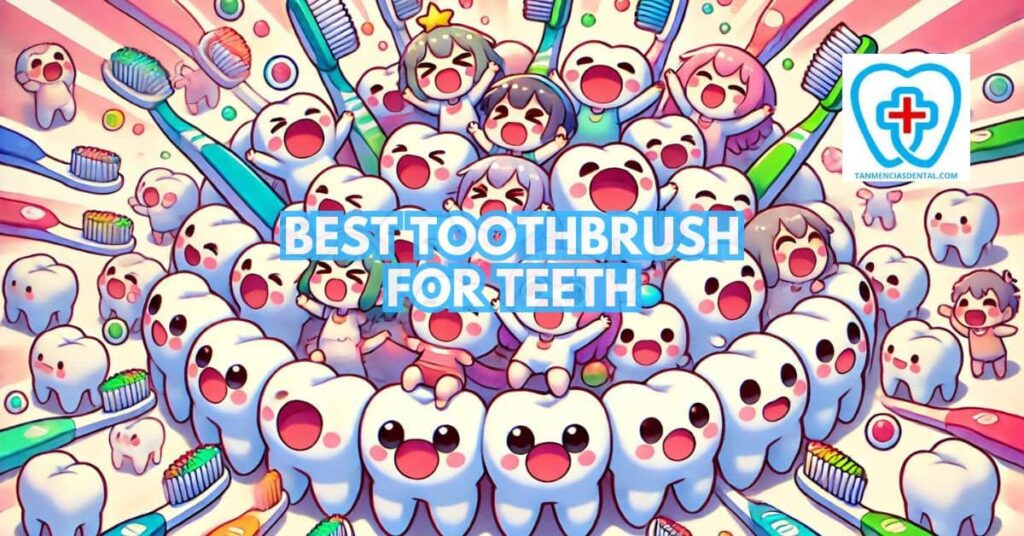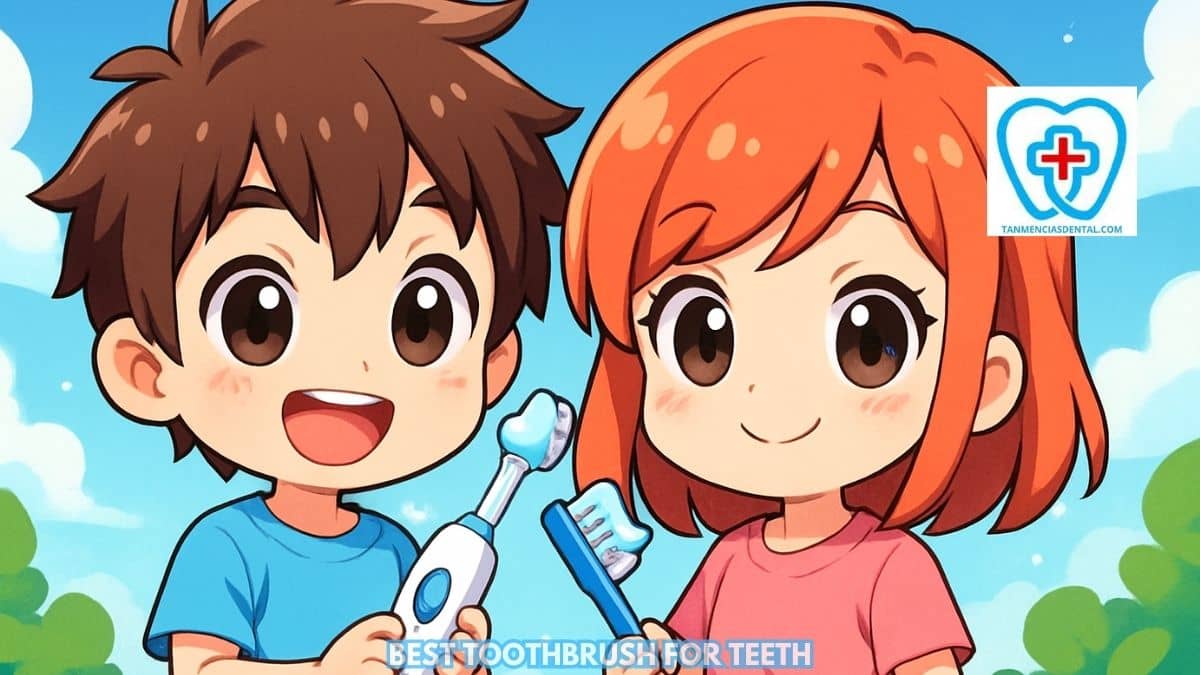Choosing the best toothbrush for teeth starts with knowing which features help you clean your mouth well each day.
Many toothbrushes look similar, but each one can offer different benefits for your teeth and gums.
Understanding things like bristle type, handle comfort, and brush head shape can guide you toward a better choice.
These details matter because they affect how easily you can clean hard-to-reach areas and care for your gums.
With the right information, it becomes easier to pick a toothbrush that supports your oral health needs.
1. Manual vs. Electric Toothbrushes: Which is Right for You?
The choice between a manual and electric toothbrush depends largely on your personal needs and preferences, especially when it comes to how you clean and whiten your teeth.
Manual toothbrushes are cost-effective and easy to find, making them a practical option for those who prefer a straightforward approach to brushing.
However, electric toothbrushes come with advanced features such as oscillating brush heads that can better reach and clean hard-to-reach areas, as well as built-in timers to ensure you brush for the recommended two minutes.
These features can be particularly beneficial for people who want to enhance their brushing routine and achieve a more thorough clean, potentially leading to whiter teeth over time.
Some studies even indicate that electric toothbrushes may be more effective at removing plaque, which is key to maintaining healthy gums and preventing tooth decay.
However, the effectiveness of any toothbrush, manual or electric, ultimately depends on using proper brushing techniques, including regular flossing to clean between teeth.
When deciding which toothbrush is right for you, consider your lifestyle, budget, and any specific advice from your dentist.
🦷 Are Dentists Considered Frontline Workers? The Unsung Heroes with Sharp Tools and Braver Smiles
2. Choosing the Right Bristle Type: Soft, Medium, or Hard?
Bristle type is an important part of choosing a toothbrush because it affects both comfort and oral hygiene.
Soft bristles are often recommended because they clean well without harming the enamel.
They are also gentle on the gums, which helps people who tend to brush too hard.
Medium and hard bristles may feel strong, but they can scrape the enamel and make the gums pull back over time.
People with sensitive teeth usually do better with soft bristles because they reduce irritation.
Soft bristles can still reach the small spaces around each tooth when used with proper brushing.
Choosing the right bristle type helps protect your mouth while giving you a clean and healthy smile.
🦷 How to Choose the Best Toothpaste for Whitening Teeth
3. Understanding Bristle Tip Shape and Pattern
Bristle tips can be end-rounded or tapered, and these shapes affect how gently they touch your gums.
End-rounded tips are smooth and help protect your enamel while still cleaning well.
Tapered or ultra-fine bristles can reach between teeth and along the gumline with less pressure.
Different bristle patterns, such as angled or multi-level designs, help the brush reach more areas in the mouth.
Choosing a brush with safe tip shapes and a helpful bristle pattern can improve how well you clean your teeth each day.
🦷 Comparing Popular Methods of Brushing Teeth: Pros and Cons
4. Finding the Perfect Brush Head Size and Shape
The size and shape of the brush head are crucial for reaching all areas of your mouth, especially those that are hard to access, like the back molars.
A smaller brush head allows for better maneuverability, making it easier to clean around tight spaces and along the gum line.
The shape should also align with the contours of your mouth, ensuring that every tooth is properly cleaned.
Oval or diamond-shaped brush heads are popular choices because they can cover more surface area while still being easy to control.
Always opt for a brush head that complements the size of your mouth and your brushing technique.
🦷 How to Get In The Habit Of Brushing Your Teeth

5. The Importance of a Comfortable Handle and Grip
A comfortable handle and grip can significantly improve your brushing experience.
When a toothbrush fits well in your hand, it’s easier to control, which allows you to brush more effectively.
This is especially important for people with arthritis or other conditions that affect hand strength and dexterity.
Look for handles with ergonomic designs and non-slip grips to ensure you can hold the toothbrush securely, even when it’s wet.
A good grip not only enhances comfort but also helps maintain consistent brushing pressure, reducing the risk of gum damage.
🦷 Why Prepasted Toothbrushes Are a Must-Have for Chronic Illness Management
6. Special Features to Look For in a Toothbrush
Modern toothbrushes often include features that can make daily brushing easier and more effective.
A built-in timer helps you brush for the full two minutes so you clean every part of your mouth.
Pressure sensors alert you when you are pressing too hard, which helps protect your gums.
A power toothbrush may offer different cleaning modes that let you choose how strong or gentle the brush feels.
Some models also include extras such as tongue cleaners or UV sanitizers that help keep the brush cleaner.
These features are helpful for people who want more support in their brushing routine.
It is important to think about which features match your needs and if they are worth the added cost.
🦷 The Ultimate Guide to Choosing the Best Toothbrush for Gingivitis
7. What Dentists Recommend for Optimal Oral Health
Dentists generally advise choosing a toothbrush with soft bristles and a small or medium head because these can clean teeth well without harming the gums.
They also remind people to brush twice each day for at least two minutes to remove plaque before it hardens.
Many dentists recommend electric toothbrushes because they can help users clean more evenly, although a manual brush can work well if you use the right technique.
A hygienist may also point out features like a built-in timer that help you keep track of how long you brush.
Some people may benefit from brushes that guide pressure or reach tight areas more easily.
It is always helpful to follow advice from dental professionals because they understand your specific oral health needs.
🦷 Can You Use Mouthwash With Braces?
8. Selecting a Toothbrush Based on Your Oral Health Needs
Your unique oral health needs should guide your toothbrush selection to ensure you’re addressing any specific concerns.
For instance, if you have sensitive teeth, a toothbrush with ultra-soft bristles might be the best choice to avoid irritation.
Those with braces or other dental appliances may benefit from a toothbrush designed to clean around wires and brackets effectively.
If you’re prone to gum disease, consider a toothbrush with gentle bristles and a small head to clean along the gumline without causing further damage.
Tailoring your toothbrush choice to your oral health needs can lead to better outcomes and a healthier smile.
🦷 How Often Should You Brush Your Teeth With Baking Soda?
9. How to Choose a Toothbrush That’s Easy to Clean and Maintain
An easy-to-clean toothbrush not only lasts longer but also remains more hygienic over time.
Toothbrushes with simple, open designs are less likely to trap toothpaste residue and debris, which can lead to bacterial growth.
Opt for a brush that dries quickly after use, as a wet brush can harbor bacteria.
Detachable brush heads, often found in electric models, make cleaning easier and more thorough.
Regularly cleaning your toothbrush and replacing it every three to four months is essential for maintaining oral health.
🦷 How to Budget for Your Next Dental Checkup and Cleaning Cost
10. Evaluating Cost vs. Value in Toothbrushes
When choosing a toothbrush, it is important to look at both the price and what you gain from using it each day.
Some models cost more because they include advanced features that help improve cleaning and may last longer.
A toothbrush like a Philips Sonicare or an Oral-B iO series can offer stronger performance, but it is only worth the cost if the features match your needs.
Many lower-priced brushes can still clean well if they have soft bristles and a comfortable design.
It helps to think about which features truly make brushing easier for you and which ones you can skip.
Comparing prices and benefits can guide you toward a choice that fits your budget.
The best toothbrush is one that provides good value by helping you care for your teeth without spending more than you need.
🦷 Orthodontic Treatment in Marikina
11. Using Customer Reviews to Find the Best Toothbrush
Customer reviews can provide valuable insights into the real-world performance of a toothbrush.
Look for reviews that mention durability, comfort, and effectiveness to gauge whether a toothbrush meets its claims.
Pay attention to both positive and negative feedback to get a balanced view of the product.
Reviews can also highlight any recurring issues, such as a weak battery in an electric toothbrush or bristles that wear out quickly.
Using this information can help you make a more informed decision and choose a toothbrush that aligns with your needs.
🦷 Tan-Mencias Dental Clinic – Expert Dental Treatments in Marikina
👨⚕️ Conclusion
Selecting the best toothbrush for your teeth involves considering various factors, from bristle type to handle design.
By focusing on your specific oral health needs and preferences, you can choose a toothbrush that will effectively support your dental hygiene routine.
Whether you opt for a manual or electric toothbrush, the key is to use it correctly and consistently for the best results.
Don’t overlook the importance of special features, professional recommendations, and user reviews in your decision-making process.
Ultimately, the right toothbrush will be one that you find comfortable and easy to use daily.
❔ FAQs
1. How often should I replace my toothbrush?
You should replace your toothbrush every three to four months.
The bristles stop cleaning well when they bend or look worn out.
A fresh brush helps you clean your teeth more effectively.
2. Are soft bristles really better for most people?
Soft bristles are usually the safest choice because they clean your teeth without harming your gums.
Medium and hard bristles can scrape enamel if you use too much pressure.
Most people get a better clean with soft bristles when they brush correctly.
3. What brush head size works best for most mouths?
A small or medium brush head works well for most people because it can reach more areas.
It is easier to move around the back teeth and along the gumline.
A smaller head also makes brushing more comfortable.
4. Do electric toothbrushes clean better than manual ones?
Electric toothbrushes can remove more plaque for many users because they include built-in movements and clear timers.
Manual toothbrushes can still work well if you use the right technique and brush long enough.
The best choice depends on your needs and what feels easier for you to control.
5. What should I do if I have sensitive gums or teeth?
If you have sensitivity, a brush with soft or ultra-soft bristles is a gentle option.
A small brush head can help you clean along the gumline without causing discomfort.
If the sensitivity continues, it is helpful to ask your dentist for guidance.
😁 Self-Promotion
At Tan-Mencias Dental Clinic in Parang, Marikina City, we’re committed to providing you with top-quality dental care in a welcoming and friendly environment.
Whether you have questions or need to schedule an appointment, our team is here to help.
You can reach out to us by calling 0917-145-1074, sending a message through our Facebook page, or filling out the contact form on our website.
We’re dedicated to ensuring your dental experience is as comfortable and stress-free as possible.
Visit us today, and let us help you achieve a healthier, brighter smile!

